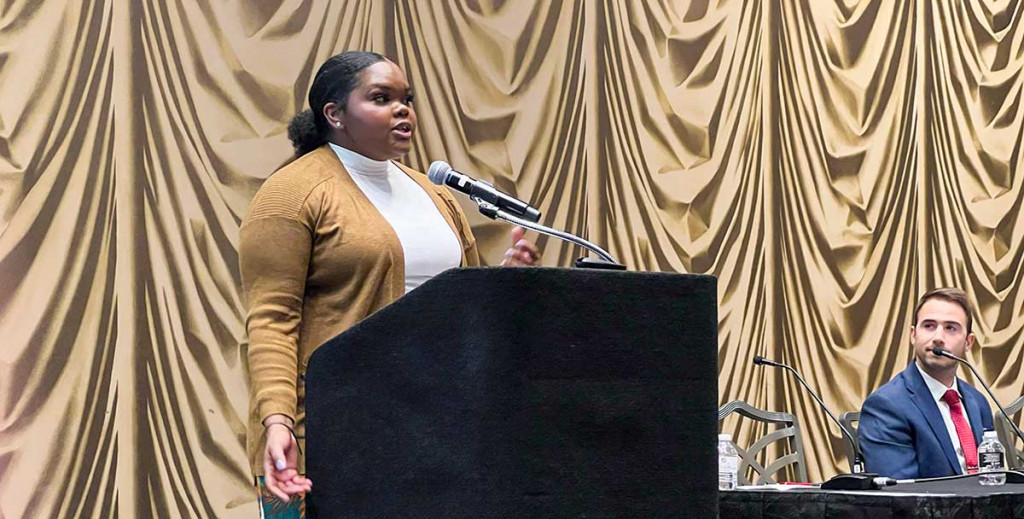Achieving Success Convening lifts voices of transition-age youth
Recently, young people with lived experience in child welfare systems joined 28 child welfare administrators from across the country at the first Achieving Success Convening, “Empowering Transition-Age Young Adults,” held in Las Vegas.
Youth voice was prominent as the group discussed best practices, current research on transition-age youth, funding for programs and services, and federal and local legislative agendas.
The convening was sponsored by the American Public Human Services Association (APHSA), Chapin Hall at the University of Chicago, the Department of Family Services of Clark County, Nevada, and Youth Villages. It is the first in a series of Achieving Success convenings to spur transition-age policies and practices.
Another Achieving Success convening is being planned for later this year.
“These convenings are designed to spur significant collaboration and lift up solutions that allow transition-age youth to reach their full potential,” said Jessica Foster, chief strategy officer at Youth Villages. “We are proud to be a part of this needed national discussion.”
Mariah Hunt, a public school teacher and advocate for transition-age youth, led a panel focusing on a five-year vision for services to young people.

“The first thing is meeting young people where they are,” Hunt told the group. “That means bridging the gap between your own expectations and where that young person is coming from.
“Once we release the expectations we have for young people and allow them to express their wants and desires to us, we can have authentic engagement. That will lead to greater success.”
Anne Farrell, director of research at Chapin Hall at the University of Chicago, facilitated a panel on evidence around supporting transition-age young adults. Panelists included Amy Dworsky, senior research fellow at Chapin Hall; Mark Courtney, Crown Family School of Social Work, University of Chicago; and Svetlana Shpiegel, Montclair State University in New Jersey.
Dr. Courtney said that before federal law allowed extension of foster care, there were people skeptical of whether young people leaving care would accept those services. The evidence has proved otherwise.
During his presentation, Dr. Courtney mentioned three studies that he has led: Midwest Study; CalYouth; and the new TAY-Hub study.
Farrell presented research on Direct Cash Transfers.
During the convening, child welfare leaders from Mississippi, Nevada, Louisiana, Connecticut, Indiana, Kentucky, New Hampshire, Tennessee, Georgia, Pennsylvania and Wisconsin shared information on transition-age services in their states and jurisdictions.
Attendees learned more about Fair Futures, a collaborative approach to transition-age care in New York City. Foster Youth in Action (FYIA) briefed on its work in building a movement of foster youth-led groups across the country.
Meg Dygert, policy lead for APHSA; Jordan Hynes, policy director for the National Governor’s Association; and Shaquita Ogletree, federal policy director for Youth Villages, closed the conference with a discussion of federal and national response to improving outcomes for transition-age adults.
As part of its initiative to strengthen transition-age services nationally, Youth Villages is awarding up to six Achieving Success grants of up to $50,000 per award, to jurisdictions to fund creative and innovative strategies designed to enhance support for older youth transitioning from foster care to adulthood and to drive better outcomes. More information is in the article below.
For more information on the recent Achieving Success event or upcoming convenings, email: achievingsuccess@youthvillages.org.

